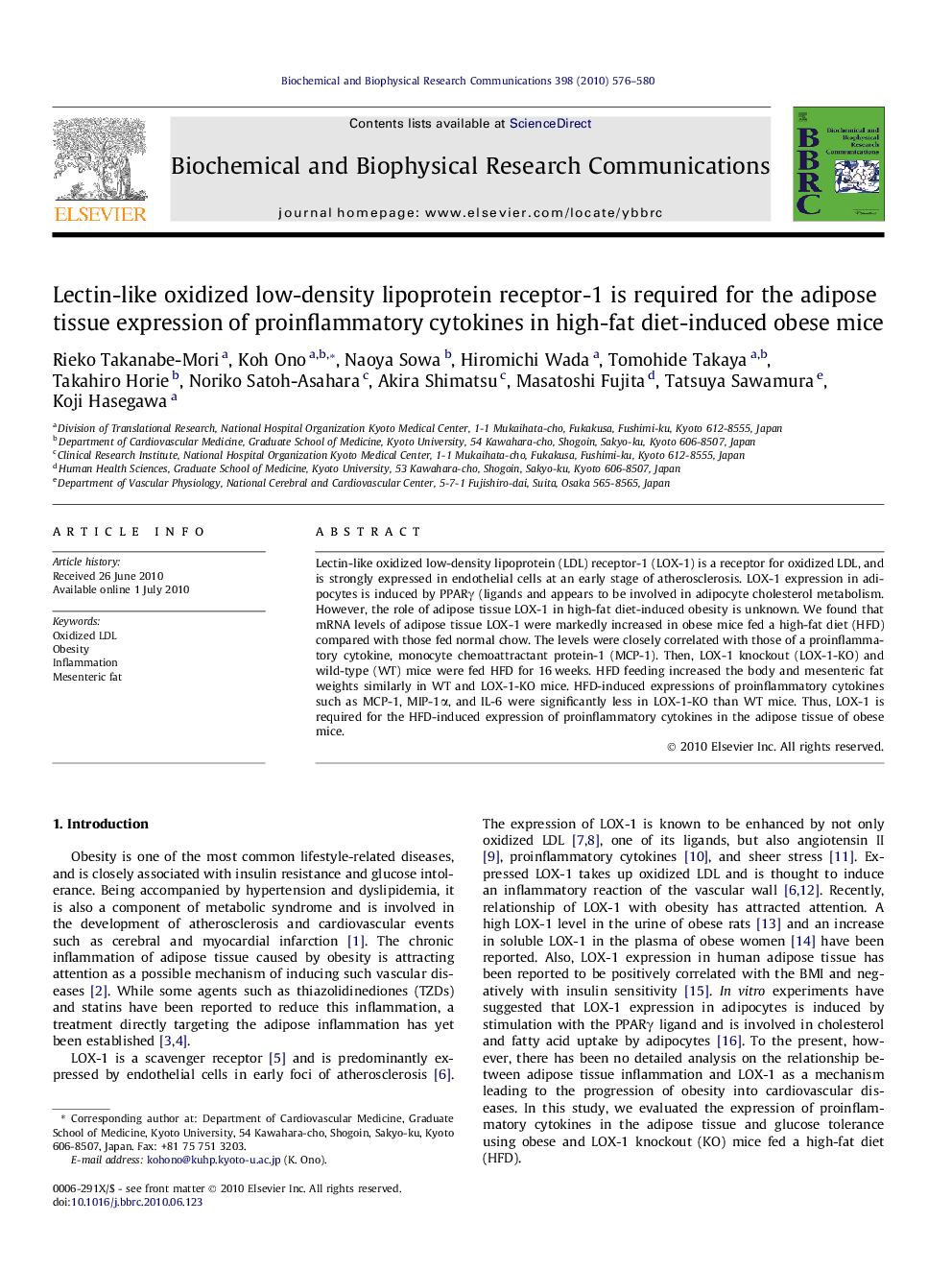| Article ID | Journal | Published Year | Pages | File Type |
|---|---|---|---|---|
| 1931585 | Biochemical and Biophysical Research Communications | 2010 | 5 Pages |
Lectin-like oxidized low-density lipoprotein (LDL) receptor-1 (LOX-1) is a receptor for oxidized LDL, and is strongly expressed in endothelial cells at an early stage of atherosclerosis. LOX-1 expression in adipocytes is induced by PPARγ (ligands and appears to be involved in adipocyte cholesterol metabolism. However, the role of adipose tissue LOX-1 in high-fat diet-induced obesity is unknown. We found that mRNA levels of adipose tissue LOX-1 were markedly increased in obese mice fed a high-fat diet (HFD) compared with those fed normal chow. The levels were closely correlated with those of a proinflammatory cytokine, monocyte chemoattractant protein-1 (MCP-1). Then, LOX-1 knockout (LOX-1-KO) and wild-type (WT) mice were fed HFD for 16 weeks. HFD feeding increased the body and mesenteric fat weights similarly in WT and LOX-1-KO mice. HFD-induced expressions of proinflammatory cytokines such as MCP-1, MIP-1α, and IL-6 were significantly less in LOX-1-KO than WT mice. Thus, LOX-1 is required for the HFD-induced expression of proinflammatory cytokines in the adipose tissue of obese mice.
Research highlights► High-fat diet-induced LOX-1 expression in the mouse adipose tissue. ► LOX-1 expression levels were closely correlated with MCP-1 levels. ► Ablation of LOX-1 suppresses high-fat diet-induced expression of MCP-1 in obese mice. ► LOX-1 may be involved in the inflammatory process of the adipose tissue in obesity.
